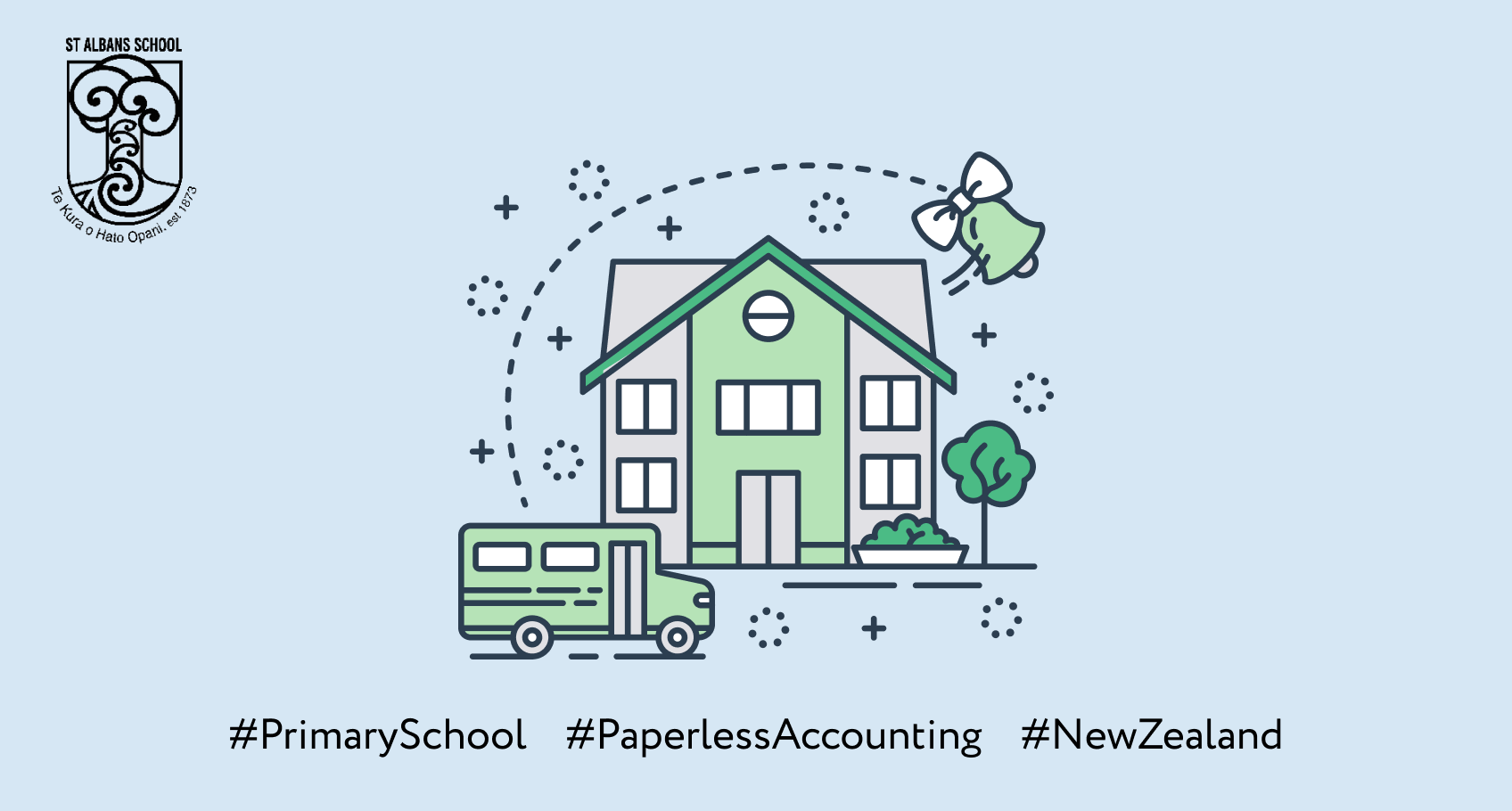Paperless accounting for a primary school in New Zealand: a case study with St Albans School

Read how a cloud app stack streamlines approvals, reporting and the overall finance function for a NZ primary school
St Albans School is a contributing primary school established in 1873, one of the largest in Christchurch with approximately 600 enrolled pupils and over 50 staff.
Accounts in primary schools: specifics and requirements
Compared to high schools, primary schools in New Zealand generally have a much simpler accounting due to the lower number of pupils, and it’s mostly done internally. St Albans School only outsources the finalisation of their end-of-year accounts before the annual audit.
As schools use public funds, they are very closely audited and their approval process must be transparent. Auditors need to see every single invoice and verify that it was approved by the right persons. All paper documents have to be kept for 7 years.
Teachers at St Albans School are also budget holders and can spend money on anything that’s related to the curriculum as long as they observe the budget. As there isn’t lots of purchasing, the school’s executive officer usually knows what’s being ordered (mostly curriculum- and ICT-related items).
Incoming invoices require the approval of the budget holder, the Principal and one of the two Deputy Principals. The former manual process of checking and approving each invoice was pretty time-consuming, despite the comparatively low number. It kept the staff really busy because it was all done on paper and the sheer volume of documents that had to be filed for audit purposes was overpowering.
The app stack that enables paperless accounting
Like many other schools, St Albans School switched to Xero when Monty was introduced by Solutions & Services because it enables budgeting and reporting in accordance with the regulations of the New Zealand Ministry of Education. In combination with Hubdoc and ApprovalMax, these tools make the perfect app stack for schools.
All invoices go from Hubdoc to ApprovalMax for approval and then to Xero for payment. They’re also stored in Monty for reporting purposes.
The old process before ApprovalMax
Even though Hubdoc and Xero were already implemented, the approval process still had to be performed on paper. Invoices used to arrive by post or email, meaning many had to be printed out. They got stamped and coded manually by the executive officer, who then had to ask first the Principal to check and sign, and then the Deputy Principal to do the same.
The new process with ApprovalMax
Now, the vast majority of invoices are emailed to the school accounts and forwarded to Hubdoc for coding. Next, they enter ApprovalMax via Xero. The automated approval process routes them to the curriculum budget holder or the Executive Officer as a first approver, then to the Principal, and lastly to one of the Deputy Principals for the final approval.
There is no more manual checking and signing. The school also uses so much less paper because all invoices are stored in the cloud with an audit trail that’s available online. The Principal and Deputy Principals just love that they can approve invoices whenever it suits them, be it during the day or after hours. It also makes working from home during the school holidays, when the staff doesn’t have to be in their office, a lot easier. They just approve invoices from the notification email on their phone as soon as it comes through.

